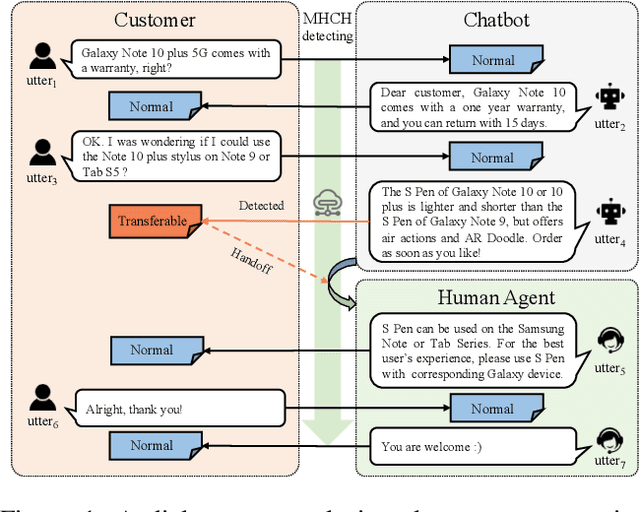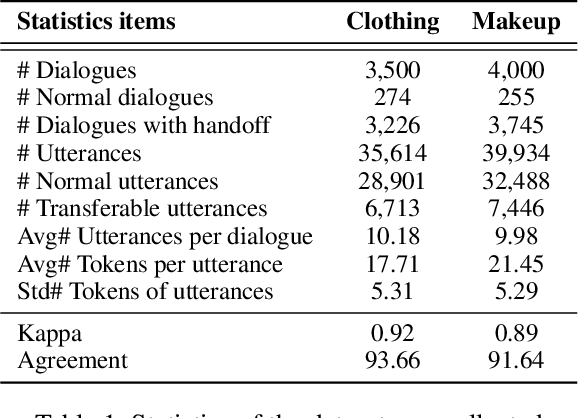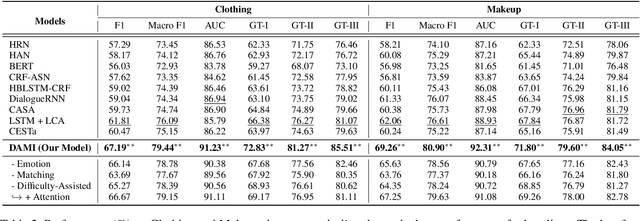Time to Transfer: Predicting and Evaluating Machine-Human Chatting Handoff
Paper and Code
Dec 14, 2020



Is chatbot able to completely replace the human agent? The short answer could be - "it depends...". For some challenging cases, e.g., dialogue's topical spectrum spreads beyond the training corpus coverage, the chatbot may malfunction and return unsatisfied utterances. This problem can be addressed by introducing the Machine-Human Chatting Handoff (MHCH), which enables human-algorithm collaboration. To detect the normal/transferable utterances, we propose a Difficulty-Assisted Matching Inference (DAMI) network, utilizing difficulty-assisted encoding to enhance the representations of utterances. Moreover, a matching inference mechanism is introduced to capture the contextual matching features. A new evaluation metric, Golden Transfer within Tolerance (GT-T), is proposed to assess the performance by considering the tolerance property of the MHCH. To provide insights into the task and validate the proposed model, we collect two new datasets. Extensive experimental results are presented and contrasted against a series of baseline models to demonstrate the efficacy of our model on MHCH.
 Add to Chrome
Add to Chrome Add to Firefox
Add to Firefox Add to Edge
Add to Edge